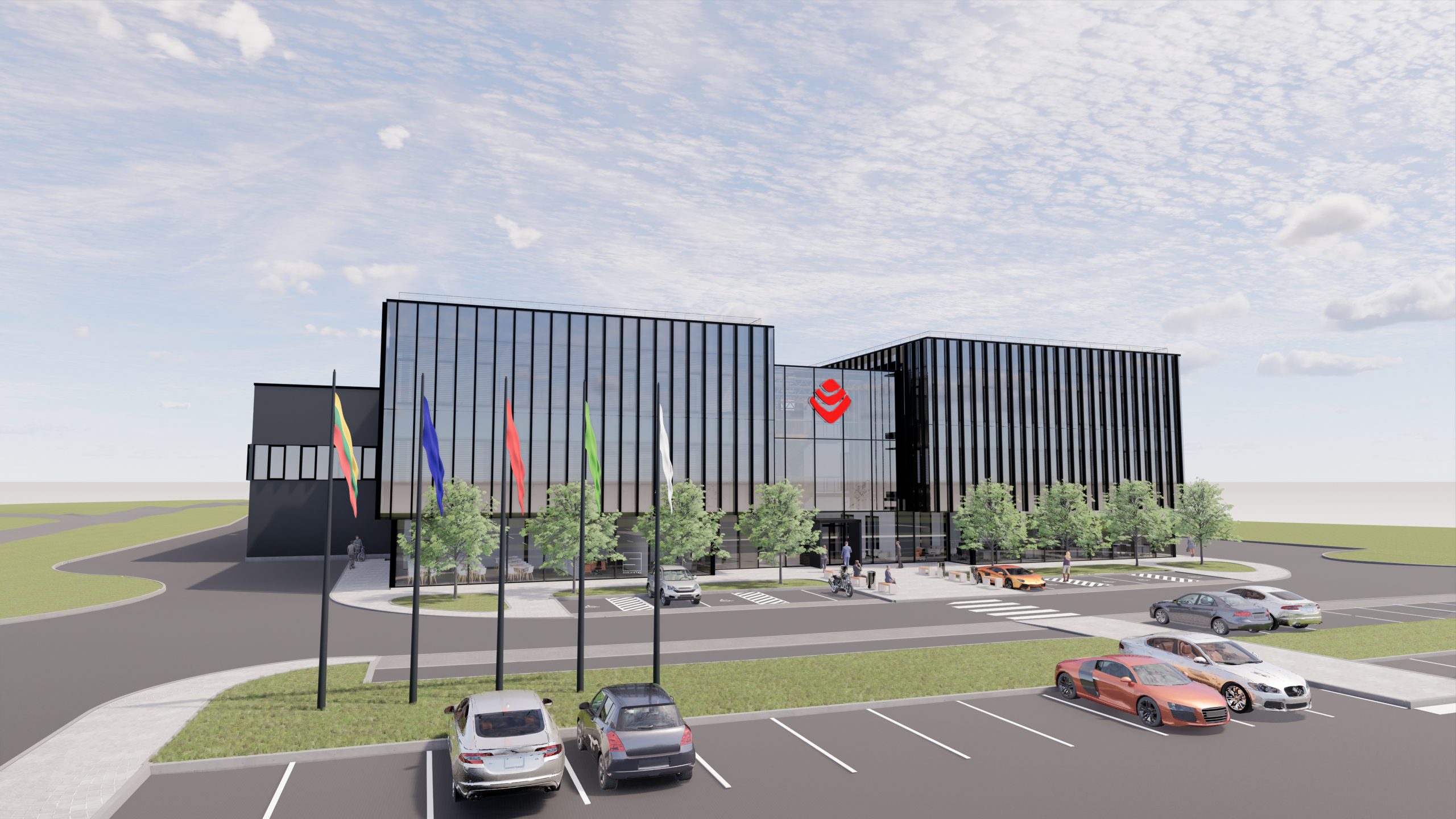KG Constructions Group (KGCG) is one of the largest producers of aluminum and glass facade structures in the Baltic and Scandinavian countries. It is now planning to build the region’s first aluminum-glass structure plant by the end of the first quarter of 2022, thereby creating more than 100 additional jobs.
The company is committed to investing 10 million in the new plant in Molėtų Plentas in Vilnius, and subsequently to increase the group’s annual sales revenue from 50 to 100 million euro over the next 5 years. Production capacity of predominantly export products is planned to double from 100,000 to 200,000 m² per year. The current plant will remain in operation after the new plant is put into operation.
The company has acquired a six-hectare plot and will carry out development there in two stages. For the first stage in 2021, the Company will build a factory of 13,800 m² along with an administrative building to manufacture KG Constructions’ aluminum-glass facade products. We plan to install six element assembly lines, and a separate window and door assembly line in the factory.
In addition to the new factory on the 3.5 ha plot, a modern, first class, three-storey office building with a total area of 2620 m² will be constructed. Almost the entire KGCG group administration will be relocated to the site. The construction process will start as early as April 2021 and is envisaged to take 11 months.

In the second stage of the project development, another 7,000 m² production factory with an administrative building are planned, and which will be allocated to the subsidiary of the group – UAB Lignas. Construction is scheduled to begin in 2023.
KGCG provides services such as technical preparation and pre-design testing, design, project management, production, logistics, installation and warranty services.
As KGCG CEO Linas Karžinauskas recounts, the decision to expand has not been changed even by this prevailing pandemic: ‘On the contrary, during this period we have observed an increase in the number of project requests, and a simultaneous shortening of the preparation work period and of the duration of construction works. The growing customer demand for quality products (facade constructions from reliable providers) has encouraged us to expand, increase production volumes and invest in modern construction and production technologies. We have no doubt that such an investment will help us to achieve an even stronger position in the markets’.
According to Mr Karžinauskas, the growth of sustainable construction trends in the Scandinavian and United Kingdom markets has encouraged the organisation to reduce the calculated amount of CO2 emissions and thus contribute to environmental sustainability.
‘We will invest in renewable energy; we will install solar energy elements and hot water treatment facilities for both administrative and industrial buildings. And this is only part of the environmental actions we have planned. Our greatest aspiration is to create a work and leisure environment of the highest standards for all our employees. We are sure this will contribute to increasing efficiency in all processes’, said KGCG CEO.
Other financial information
This year, KGCG’s activities will mainly cover the Swedish (41%) and Danish (23%) markets, 19% of the works will be implemented in Norway, 10% in Lithuania and 7% in Latvia. The company aims to establish itself in a new market in the United Kingdom and take the first steps towards the German market. Planned sales revenue should reach 50-55 million euro in 2021.
Compared to 2019, sales revenue of the group of companies grew by 19% in 2020 and reached 49 million euro. According to unaudited data, in 2020 the EBIDTA of the group companies grew almost 1.8 times, reaching 7.07 million euro. In 2019, the group’s sales revenue was 41.9 million euro, while the EBIDTA stood at 3.94 million euro.
The growth of profitability indicators was determined by long-term investments in the implementation of efficiency-enhancing measures. These commenced in 2017 by restructuring the company’s management and processes and using lean methods. Additionally, the company focused on employee training, sales diversification and working only with customers with high reliability ratings.


